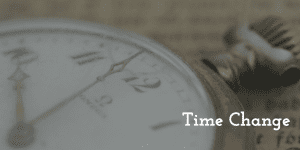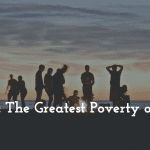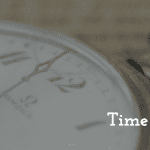
“In an age of speed…nothing could be more invigorating than going slow.” -Pico Iyer
For the past few years, I’ve been thinking a lot about time. Maybe it’s because we have kids, and watching them grow up is a bit like having personalized little hour glasses walking around reminding you of each passing day…or maybe it’s because I’m starting to feel older and busier with each passing year.
But whatever the reason, I’ve started to believe that there is almost nothing in the world that shapes a person quite as much as how they view their time.
Time is Money?
That may sound like a bit of an overstatement, but did you know that the historian Lewis Mumford called the clock the most significant invention for shaping modern society?
He called it:
“the key machine of the modern industrial age…a piece of power machinery whose ‘product’ is seconds and minutes: by its essential nature it dissociated time from human events,”
Think about that for a second. Mumford looks past all the modern novelties like indoor plumbing and the electric lightbulb and even the internet, and says the thing that really changed the world the most was the invention of the clock.
Because the clock created time. An unquestioned absolute that dictates just about everything we do in life.
But wait a minute, you say, clocks didn’t create time, clock just keeps track of time, right? No. This is oversimplifying here, but before the clock we didn’t have what we think of today as time, instead we had something different.
Before there was time, we had seasons.
Now time was something that stood on it’s own and could be segmented away from the relationships we had with the Created world and the people around us. Now time could become a commodity, measured in the smallest of slices and something you felt like you never had enough of.
Time is money, time is running out, there’s never enough time.
This is a new problem, and it’s one I think the Christian story is uniquely capable of speaking into.
The Benedict Option
These days, much is being made of the Benedict option in Western Christianity, and I think rightfully so. Unfortunately, when we talk about the Benedict option we are often really talking about culture wars (that we Christians are losing) and a withdraw from society to keep our values (mostly of the sexual variety) from being tainted by the broader world.
But remember who St. Benedict was?
The pagan systems of keeping time didn’t serve the interests or the expectations of the Christian church. The Book of Ecclesiastes acknowledges multiple seasons of time (to plant and pluck up, to mourn and to dance), but at the end of his lesson the preacher reminds the faithful that time in all of its voices and declensions is the property of God, [so]… In the mid-sixth century, St. Benedict arranged the hours of the day into a sequence of prayers decontaminating the flow of time within the walls of monasteries, time emptied of its doctrinal impurities and sexual intoxications.
St. Benedict knew that nothing shapes your life quite like the way you view your time.
If you buy into the common secular view that time is money, and money is the supreme virtue, than you will always feel like you don’t have enough, you’ll always be too busy and stretched thin.
Eventually, St. Benedict’s view of time spilled back over into the broader world, and so the first clocks that appeared in the city squares of Italy were the ones that were fixed on church towers.
But don’t forget that these clocks carried with them a story. Time was not a commodity, time was out gift from God, and what we did with it was our gift back to God.
So people would pray at certain times, work at certain times and play and rest at certain times. We lived with a rhythm, a cadence that helped us make sense of our place in the universe and the life that we had.
And while this whole notion of praying when bells ring, and keeping certain calendars and seasons may sound quaint to you, I’d like to ask how is your relationship to time without it?
John Ortberg once asked Dallas Willard to describe Jesus in a word, and Willard casually responded “relaxed.”
Because this is the life of someone who believes that time is in the hands of a Good and Beautiful God. This is the life of faith, it’s characterized by being able to relax.
Stress is something that we started talking about in the 80’s, it was the yuppie disease, now we are starting to see our kids in elementary schools having life altering kinds of stress and anxiety.
This kind of stress comes primarily from our relationship to time, and the slow realization that we have that we are not in control of it.
If you want a better, more sane life, if you are a Jesus follower, or just want to try his ideas out for a while, than may I suggest that you start here.
Time is of the essence.











